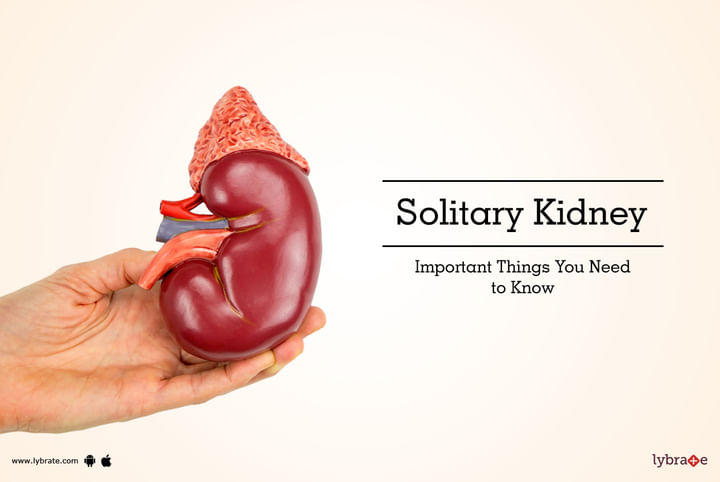Solitary kidney: Important things you need to know
Kidneys are critical for healthy functioning of the body, they remove extra waste products and fluids from blood. We have a pair of kidneys which are located in the abdomen, on either side of the spine, but in rare cases, people have one kidney. This condition is called solitary kidney. If the kidney is functioning normally, there are no such complications and one can lead a healthy life.
Causes of solitary kidney
There are three main cause of solitary kidney, which are:
-
Birth defect - There are two types of birth defects that can cause solitary kidney. One of the condition is that the child is born with only one kidney, this is known as kidney agenesis. The other condition is called kidney dysplasia, where the child is born with two kidneys, but only one of them functions.
-
Surgical removal of a kidney - Due to any medical condition like a disease, infection, acute injury or tumor, functioning of kidney can be impacted. In such a case your doctor might suggest to remove the kidney.
-
Kidney donation - In case if somebody has donated the kidney for a transplant.
Precautions to avoid complications and any disorders of the kidney
A single kidney can perform all the functions and chances of complications later in life are very less. However, your doctor may suggest a close monitoring and may recommend the following tests, to check for the early signs of kidney damage or any problem:
-
Albuminuria: Increased levels of albumin, a kind of protein, in blood is an early sign of kidney damage. A routine urine test is suggested to check the raised level
-
Glomerular Filtration Rate (GFR): The rate at which kidney filters waste is called glomerular filtration rate (GFR). GFR is used to define the stage of kidney failure
-
Hypertension or high blood pressure: High blood pressure is one of the primary cause of kidney failure. Therefore, it is important to keep a check on your BP levels
To lead a healthy life and to avoid any risks or further complications, go for regular check-ups and follow a healthy diet and lifestyle, as suggested by your doctor.


+1.svg)
